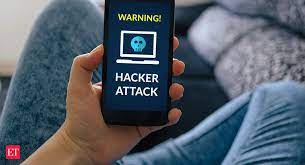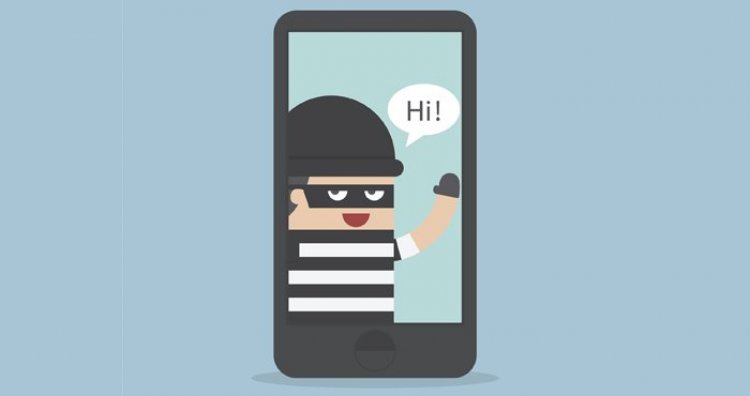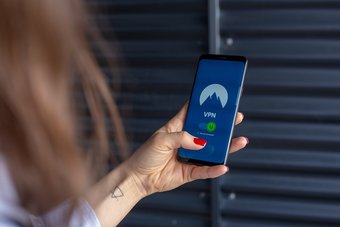Here Are Signs You Might Have Been Hacked – What Is My IP …
Hackers don’t typically tell their victims that they’ve been hacked. Most of the time, when hackers gain entry to computers to do their dirty work, they don’t want anyone to know. That way, they can come back another time to see what else they can do or find.
Because of that, you might not know if your computer has already been hacked. But there are a handful of signs that indicate a hacker may have invaded a network or a computer you use. Some are computer-related and some are not. If any of these sound familiar, perhaps you’ve been a victim…without knowing it. And if that’s the case, it’s better that you know about it, so that you can take quick action.
Have any of the following happened to you?
Someone used one of your credit accounts. Online identity theft is common. If you use credit cards online, that could be an indication a hacker was the culprit.
You start receiving odd email messages. Friends start telling you they’ve received strange emails from you (that you never sent), or you notice messages in your Sent folder you didn’t write…these are clear signs a hack has likely happened.
New programs suddenly appear. You didn’t buy it or install it, but you notice a new program has been loaded onto your computer. That’s a clear indication that someone has manipulated your computer.
A trusty password doesn’t work. If a password suddenly stops working, that could mean a hacker has broken into your computer and changed your account’s login details—and it could get worse from there.
You notice strange browser activity. Some hackers move right into a computer and control it as if they’re in front of it. If you ever notice browser activity that isn’t yours (or someone else’s in your family), that could mean trouble.
You start losing control. A computer virus can redirect your browser activity and prevent you from reaching websites you want. That’s certainly the work of a hacker who came and went.
Here are more possible signs that a hacker may have successfully targeted your computer:
You can’t update your system. Malware, which may have been put there by a hacker, can prevent you from downloading the latest system or antivirus updates.
Your computer runs slower than usual. Internet connectivity has gotten better over the years, so if you notice your connection slowing down, it’s possible there’s someone using your bandwidth—it could be as simple as someone using your unsecured wireless connection or as bad as a stealth hacker downloading data from your hard drive.
A big-name company was hacked. You read that Target, Home Depot or FitBit was hacked…so what’s the big deal? Well, if the hackers got email addresses and passwords, they’ll immediately test that login information elsewhere. A hack could be coming, which is why it would be wise to change your passwords immediately.
You notice unusual disk activity. If you hear your computer hard drive whirring overtime, it could be your antivirus software scanning—or it could be hacker-placed malware looking for data to damage or steal. Look into it.
Your antivirus software becomes disabled. There is malware out there that hackers use to 1) disable your antivirus and 2) create havoc. If you notice your antivirus turns off on its own, there’s a hacker at work.
Strange things are happening onscreen. Except for annoying, intrusive online ads, there shouldn’t be too many onscreen surprises. If you see strange things—toolbars, pop-ups, new programs you didn’t have before—it’s likely you’ve been hacked.
Here’s the point to all of this: If you’re lucky, you’ve never been hacked. Or is it that it’s already happened, but you’re not aware of it?
That’s why it’s important that you know what to look for. So, if you now suspect you might be the victim of some computer foul play, you should go online for tips and remedies for setting things right.
Related Articles
What is Hacking?
Protecting Online Accounts
7 Things Hackers Do

How to check if my home Internet/ Wi-Fi network has been …
If your home internet or WiFi network has been slower than usual lately, this might be because it has been compromised. The hacker might be using your network to do various things including illegal downloads of entertainment files like music playlists and videos, and even stealing your personal information.
So how can you check if someone else is using your network for malicious activities?
You should start with checking the devices associated with your router. This way you can see how many devices are registered on your network and if any of them do not look familiar. Here’s what to do: log in to your router by typing its IP address directly into the browser address bar. In most setups, either or should work, or it may be written on the router itself, along with the username and password you need to log in with.
Once logged in, look around a section called Attached Devices or Device List, where you’ll find a list of all the IP addresses currently being used on your network. Unfortunately, not all devices will have a name that make them easily recognizable (like Peter’s iPhone or Jack’s laptop), which means that you’d need to figure out the IP address for each device.
In order to prevent a hack on your system, you should check whether your router is still using WEP (type of authentication protocol) as a security method. If it is, that means that your router is very old and it’s vulnerable to cyber attacks. If you’ve purchased your router in the past 5 years, then it should support more secure authentication protocol like WPA or WPA2. You can check this by logging in to your router from your laptop where you can find the Wireless Settings and choose your preferred authentication protocol. Also, make sure you change the WPA2 password to a long phrase that is a combination of numbers, letters and symbols like #%*<$?! =+.
Here are a few other simple steps to follow to make sure that your network doesn’t get hijacked:
Change the default admin password on your router
Hide your SSID – SSID is your network name (like Peter’s WiFi) and you can hide it so that it’s not visible to others
IP Filtering – This blocks your IP address; however, bear in mind that hackers know how to easily change an IP address
MAC Filtering – This is a very secure method if you’re a MAC user because it blocks the device via the unique hardware address that is given out during the manufacturing process.
These are the steps to follow to make sure that your home Internet network isn’t used by hackers. Should you have any questions on the topic, leave a comment below or tweet us @JustAskGemalto and we’d be happy to answer them all!

What can someone do with my IP address? | NordVPN
There are dangers to someone knowing your IP address, but they’re rarely discussed. Criminals can use your IP to launch various cyberattacks and scams against you and others. Before we begin, however, let’s start with finding out what your personal IP address is: What is my IP? By the end of this post, you’ll know what to protect yourself against and discover ways to hide your IP address. Pretty can someone find my IP address? Your IP address is a unique string of numbers assigned to you by your ISP – like a delivery address for online traffic. If you connect to a different Wi-Fi or move house, your IP address will change along with your ISPs use dynamic IP addresses, which aren’t fixed to your device, but you can have a static IP if you wish to (you can learn more about different types of IP addresses here). For example, if you want your computer IP address to always stay the same, you’ll be able to specify that through the device’s settings. This can be useful when port-forwarding, if you want certain data to be sent directly from your router to your computer IP your IP address holds certain information about you, someone may want to use it for malicious purposes. There plenty of ways people can get hold of your IP address. Here are just a few:If you torrent files. When you download content from torrent sites, every member of the swarm (total seeders and leechers) can see your IP address. All they need to do is check the list of borrowing your device. If somebody borrows or uses your computer, they can find out what your IP address is in seconds, as there are countless free websites that let you do an email. If you send an email to someone, they can check the header of the message, which could contain your IP address. Yahoo! and Microsoft Outlook are known to include IP addresses in the email icking on a link. Any link you click on will need to provide your iP address for the server at the other end to deliver the content provided by the link. Whoever owns that server will see your IP a VPN hide my IP address? Yes, it does. A VPN completely hides your IP address and encrypts your internet connection. Even better, a VPN prevents third parties like your ISP from eavesdropping on your data. Your online activity cannot be traced back to you, giving you a powerful layer of rdVPN has more than 5500 servers in 59 countries, providing you with the best speeds available. With one NordVPN account, you can protect up to six different devices: smartphones, tablets, laptops, and more. You can also install it on your router and secure gadgets that don’t support VPN functionality can jump from one server to another in seconds, changing your IP address and masking your location. Protect your online privacy out NordVPN on the latest cyber news and tipsWhat can people do with your IP? While your IP address won’t give away sensitive information like your phone number or apartment position, hackers can still use your IP against you. If a cybercriminal knows your IP address, the consequences can be devastating:Someone can get your location and intrude on your privacy in real lifeYour IP address shows what city you’re in, so if someone ill-intentioned finds it out, you could be in trouble. Let’s say you’ve announced that you’re going on holiday on your social media. A criminal only needs to do a little extra digging to find your house and burgle it while you’re meone can use your IP to hack your deviceThe internet uses ports as well as your IP address to connect. There are thousands of ports for every IP address, and a hacker who has your IP can try all of those ports to brute-force a connection, taking over your phone for example and stealing your a criminal does get access to your device, they could also install malware on it, which could expose your meone can impersonate you to get hold of your IP addressYour ISP could reveal your IP address to someone else. Criminals who know your name on social media can contact your ISP and try to impersonate you or use a vishing attack to steal your personal details. Remember that telecom operators are only humans who use systems with vast amounts of personally identifiable information. Employers can track your activityIPs are owned by ISPs, and each IP is assigned to a user. When you’re connected to your work network your employers could potentially see and track everything you do online – giving you hardly any privacy at all. A hacker can hit you with a DDoS attackIf a hacker has your IP address, they could harm you with a DDoS (Distributed Denial of Service) attack. A DDoS attack uses an army of computers controlled by a hacker to flood your device with traffic so it disconnects from the internet and completely shuts bercriminals can frame you for illegal activityHackers are known to use hacked IP addresses to download illegal content that threatens national security as well as anything else they don’t want traced back to them. Protect your IP address, and you will protect do I stop someone from using my IP address? You should always protect any personally identifiable information even if you think the risks do not apply to you. With enough determination, a bad actor can stitch together an entire identity just by going online, and your IP could be the starting are three ways to protect your IP address and prevent yourself from being exploited by hackers: Change your privacy settingsChange the settings on all your instant messaging as well as any other apps to “private” and don’t accept calls or messages from people you don’t know. Hackers are known to gain access to your IP address through messaging apps like Skype. Update your firewall and routerA criminal can hack your router remotely and retrieve your IP address, especially if you’re still using the default one. Change the password of your router regularly and be sure to use a long mix of upper and lower case letters, numbers, and special characters. Use a VPNA VPN will protect your IP address and your private information. By routing your online data through a VPN server with its own IP address, you can prevent websites from logging information about your device and location. While you might be principally interested in VPNs for their IP-switching functionality, they also come with a range of additional other benefits can a VPN offer? A VPN will establish an encrypted tunnel between your device and a VPN server. That means that no one can spy on your data as it moves from your device to the server — not even your internet service provider (ISP) has never been more valuable. Your ISP can monitor your activity and sell that information to advertisers and other third parties. Hackers can steal your passwords and use your private details to launch phishing attacks. It’s vital that you protect your rdVPN provides a number of extra features that you might find particularly useful. Our CyberSec system will enhance your protection against malware by shielding you from high-risk websites and other known threats. When Kill Switch is enabled, you can avoid any unexpected data exposure. And with the NordLynx protocol, you can enjoy unrivaled speeds, without compromising on out NordVPN on the latest cyber news and tips
Zen Bahar
Verified author
Zen likes to use her cybersecurity knowledge to help protect the privacy and freedom of others, otherwise, you can find her playing with paints in her studio in London.

